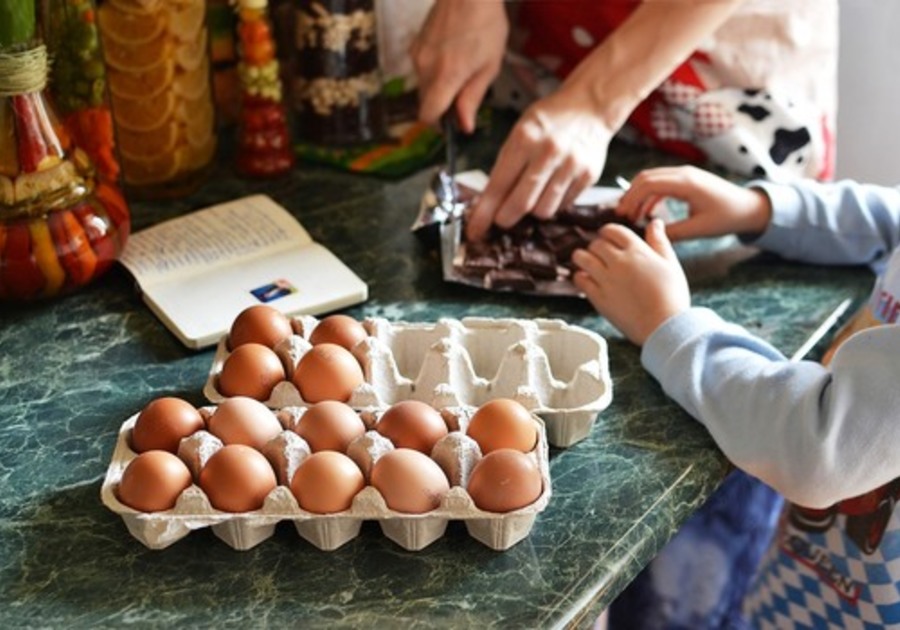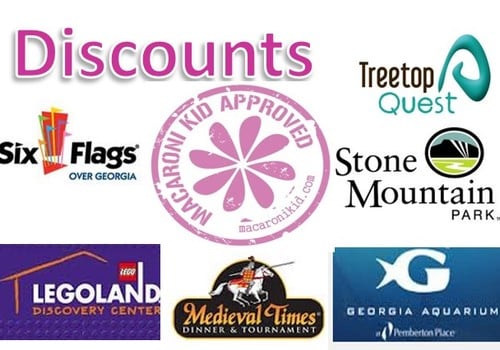Have you heard of the Summer Slide? No, it isn't the latest dance move. It's the loss in knowledge that happens to kids during the summer months. Studies say that the average student loses one month's worth of school-year learning over the summer. And the decline in math skills is greater than the decline in reading. The crazy thing is you don't need to send the kids to math tutoring or buy them a textbook to work through when school's out -- there are things you can do at home that are much more fun!
Here are 20 ways to incorporate math in your child's summer routine to help minimize or eliminate that Summer Slide:
1. Take a calculator to the grocery store and have your child add up the groceries as you put them in the basket.
2. Play Monopoly, Dominos, Blackjack, or any game that requires math skills.
3. Have the kids help with the cooking ... especially the measuring. And talk about those measurements with them. The recipe calls for 1/4 cup of milk. We want to make a double batch. How much milk do we need? If we have a dozen eggs and we use two of them in this recipe, how many eggs will we have left?
4. Ask your child to make room on a shelf for a new item. Measure the width of the item. Measure the space on the shelf. Will it fit? If not, how much room do you need to make so that it will fit? What is on that shelf that is about that size or bigger?
5. Do you give your child an allowance? If so, give them envelopes too and have them put some of their allowance in each envelope. One envelope is saving for a big item the child wants (say a bicycle where you're going to pay part and your child will pay part.) The second is tithing (if you go to church.) The third is short-term savings (something that only takes two allowance cycles to have enough money for.) The fourth is spending money for right now. Talk about how much money is going into each envelope and talk about what percent of the total allowance is going in each envelope. If you know how much the big item costs (the bike in this example), help your child do the math to determine how many weeks they'll need to save to achieve the amount they are contributing to the bike.
6. When you buy something when your child is with you, try to use cash whenever you can. That way you can say to your child, "The item costs $15 and I am going to pay with a $20 bill. How much change will I get?"
7. Ask your child to help set the table at mealtime. How many plates do we need? How many forks do we need? If we need four plates and four forks, how many items do we need to put on the table in total?
8. When you go to the store, count the number of steps you take from the car to the door of the store. Or count the steps in your home as you go up the steps. Count the steps when you go down. How many steps did you take in total?
9. Cut a pie into pieces. Take a piece out of the pie and identify the piece that came out as a triangle. Talk about how all of those triangles together create a round pie.
10. For kids who are a little bit older, ask them to calculate what the tip should be at a restaurant, based on the cost of your family's meal.
11. Watch a baseball game together and count the balls and strikes. To make it more complex, keep a piece of paper handy and write down every ball or strike that your team's pitcher throws through the entire game.
12. Put puzzles together.
13. Have a scavenger hunt and tell the kids each of them needs to find a certain amount of items.
14. Look at the clock when your child goes to bed. Look at the clock when your child wakes up. Ask them, "How many hours did you sleep last night?"
15. Plant a garden or flowerbed and measure the distance you need to leave between the plants when you plant them.
16. Collect pennies and look at the date the penny was minted. How many years ago was that? How many years before (or after) your child was born was the penny minted? Which penny is the oldest penny in the collection?
17. Measure the height of each doll in your home. Which doll is the tallest? Which is the shortest?
18. Get two food storage containers and a box of macaroni. Ask your child to guess which container will hold more macaroni. Then put it to the test.
19. Walk through the neighborhood and play the Numbers Game. Using house numbers, find the numbers in sequence - 1, 2, 3, 4, 5, 6, 7, 8, 9, etc. As kids get older, make it a competition to see who can spot the numbers first.
20. Look at a picture and find the shapes in the picture. The house is a square. The bicycle tires are circles, etc. How many shapes can you identify?
Math is a part of so many things we do daily, yet as adults, we don't even think about them; we don't see them. Be more aware of these everyday interactions with math and point them out to your children. After a while, don't be surprised if your child starts challenging YOU to find the math in an activity!
You may also like | ||
Are you constantly looking for things to do locally with your kids? We have an event calendar just for local families! It's packed full of local events, festivals, fairs, story times, and awesome local family fun. We proudly serve families in Tyrone, Fayetteville, Senoia, Sharpsburg, Brooks, Newnan and Peachtree City! Sign-up for FREE by clicking HERE.







